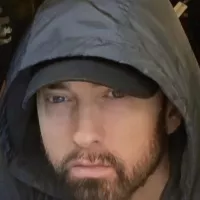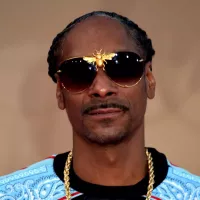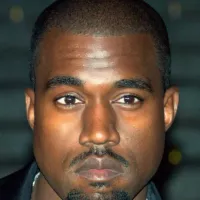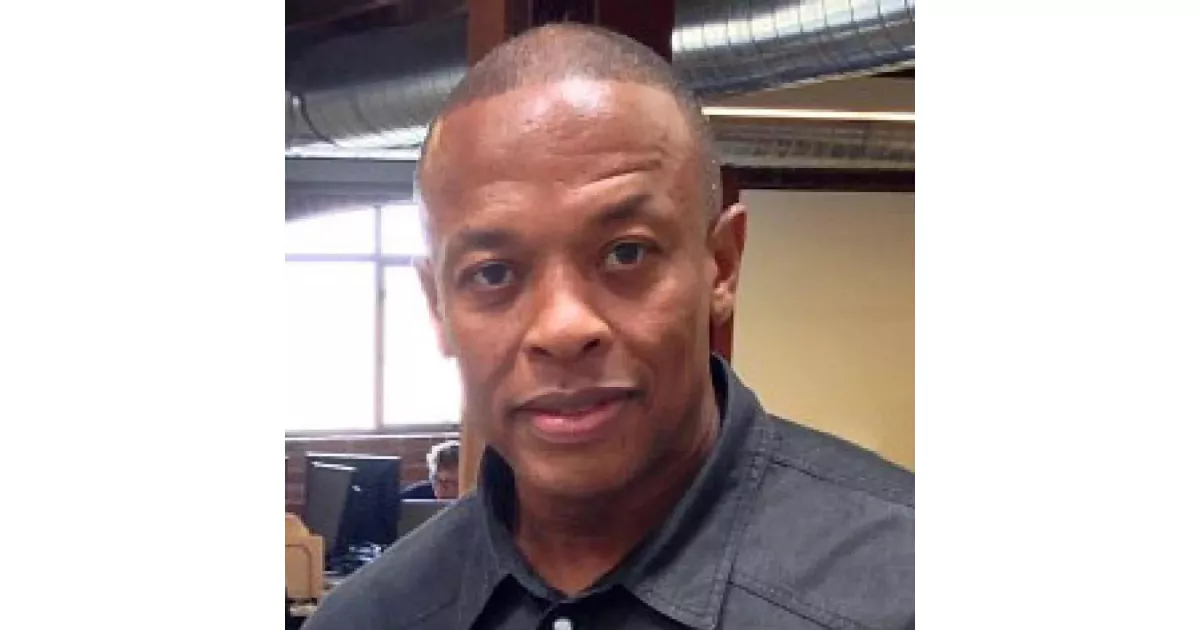Dr. Dre, born Andre Romell Young, is an influential American rapper, record producer, and entrepreneur. He co-founded Death Row Records and is the founder and CEO of Aftermath Entertainment and Beats Electronics. He started with World Class Wreckin' Cru, achieving wider recognition with N.W.A, popularizing explicit lyrics and gangsta rap. Dre is credited with developing West Coast G-funk in the early 1990s, characterized by synthesizers and a slower tempo.
1964: Parents' Marriage
In 1964, Theodore and Verna Young, Dr. Dre's parents, got married.
February 18, 1965: Andre Romell Young Born
On February 18, 1965, Andre Romell Young, who would later become known as Dr. Dre, was born in Compton, California, to Theodore and Verna Young.
1967: Release of "The Edge" by David McCallum
In 1967, David McCallum released his jazz-funk work "The Edge", the main melody of which keyboardist Camara Kambon re-played live for Dr. Dre's song "The Next Episode".
1968: Parents' Separation
In 1968, Theodore and Verna Young, Dr. Dre's parents, separated.
1972: Release of "I Wanna Do Something Freaky to You"
In 1972, Leon Haywood released the song "I Wanna Do Something Freaky to You", which Dr. Dre sampled in his song "Nuthin' but a 'G' Thang" from The Chronic album.
1972: Parents' Divorce
In 1972, Theodore and Verna Young, Dr. Dre's parents, divorced. His mother later remarried Curtis Crayon.
1976: Attending Vanguard Junior High School
In 1976, Dre began attending Vanguard Junior High School in Compton, but he later transferred to Roosevelt Junior High School due to gang violence.
1979: Attending Centennial High School
In 1979, Dre attended Centennial High School in Compton during his freshman year, but transferred to Fremont High School in South Central Los Angeles due to poor grades.
December 15, 1981: Birth of Son Curtis
On December 15, 1981, Dr. Dre's son Curtis, also known as Hood Surgeon, was born to Dre and Cassandra Joy Greene.
1983: Birth of Daughter La Tanya Danielle Young
In 1983, Dr. Dre and Lisa Johnson had a daughter named La Tanya Danielle Young.
1984: Recording "Surgery" with DJ Yella
In 1984, Dr. Dre and DJ Yella recorded the song "Surgery" in a small four-track studio in the back room of Eve After Dark. This was one of their first recording sessions.
1984: Dr. Dre Joins World Class Wreckin' Cru and Popularizes Explicit Lyrics in Hip-Hop
In 1984, Dr. Dre began his career as a member of the World Class Wreckin' Cru, a group that helped popularize explicit lyrics in hip-hop, detailing the violence of street life. The year 1984 also marked the beginning of Dr. Dre's involvement in shaping the West Coast G-funk sound.
1985: Joining World Class Wreckin' Cru and Initial Success
In 1985, Dr. Dre joined the musical group World Class Wreckin' Cru, which released its debut album under the Kru-Cut label. The group's song "Surgery" became a hit, selling 50,000 copies within the Compton area.
1986: Meeting Ice Cube and Collaborating on Ruthless Records
In 1986, Dr. Dre met rapper Ice Cube and collaborated with him to record songs for Ruthless Records, which was run by Eazy-E.
1987: Relationship with Michel'le Begins
In 1987, Dr. Dre began dating singer Michel'le, who frequently contributed vocals to Ruthless Records and Death Row Records albums.
1988: Birth of Son Andre Young Jr.
In 1988, Dr. Dre and Jenita Porter had a son named Andre Young Jr.
1988: Producing Eazy-E's Debut Album
In 1988, Dr. Dre produced tracks for Eazy-E's solo debut Eazy-Duz-It, solidifying his role as a key producer.
1989: Producing Eazy-E's Debut and Other Ruthless Records Acts
In 1989, Dr. Dre produced tracks for a number of other acts on Ruthless Records, including Eazy-E's solo debut Eazy-Duz-It, Michel'le's self-titled debut, and the D.O.C.'s debut No One Can Do It Better.
1989: Straight Outta Compton Album Release and Controversy
In 1989, N.W.A released their first full album, Straight Outta Compton, which became a major success despite the lack of radio airplay. The FBI sent Ruthless Records a warning letter because of the song "Fuck tha Police".
1990: Producing Above the Law's Debut
In 1990, Dr. Dre produced tracks for Above the Law's debut Livin' Like Hustlers.
1990: Child Support Lawsuit
In 1990, Jenita Porter sued Dr. Dre, seeking $5,000 per month in child support for their son Andre Young Jr.
1990: Tairrie B Claims Assault by Dr. Dre
In 1990, former labelmate Tairrie B claimed that Dr. Dre assaulted her at a party, contributing to the growing controversy surrounding accusations of violence against women.
1990: Tairrie B's Assault Claim
In 1990, former labelmate Tairrie B claimed that Dr. Dre assaulted her at a post-Grammy party in response to her track "Ruthless Bitch".
January 27, 1991: Assault on Dee Barnes
On January 27, 1991, Dr. Dre assaulted television host Dee Barnes at a music industry party, leading to a lawsuit, fine, probation, community service, and a public service announcement.
May 1991: Brawl in New Orleans Hotel
In May 1991, Dr. Dre was involved in a brawl in the lobby of a New Orleans hotel, which led to battery charges.
1991: Birth of Son Marcel
In 1991, Dr. Dre and Michel'le had a son named Marcel.
1991: Leaving N.W.A and Forming Death Row Records
In 1991, Dr. Dre left N.W.A at the peak of its popularity, advised by The D.O.C. and Suge Knight, due to a dispute with Eazy-E. Knight helped him get out of his contract and, with Dr. Dre as the flagship artist, founded Death Row Records.
1991: Dr. Dre Pleads No Contest to Assault
In 1991, Dr. Dre pled no contest to assaulting television host Dee Barnes, resulting in two years' probation and an out-of-court settlement in a related civil suit. This event brought significant negative publicity to Dr. Dre.
1991: Producing Jimmy Z's Muzical Madness
In 1991, Dr. Dre produced funk rock musician Jimmy Z's album Muzical Madness.
1991: Formation of Death Row Records
In 1991, after leaving Ruthless Records and forming Death Row Records, Dr. Dre enlisted Chris "the Glove" Taylor, Greg "Gregski" Royal, and Colin Wolfe to assist on future projects.
April 1992: Shooting Incident
In April 1992, Dr. Dre was shot four times in the leg after a verbal dispute with his engineer.
June 28, 1992: Dr. Dre's Mansion Damaged by Fire
On June 28, 1992, a barbecue grill and overfilled charcoal caused a fire at Dr. Dre's Calabasas mansion, resulting in over $125,000 in damages and minor injuries to two firefighters.
October 1992: Dr. Dre Pleads Guilty to Battery of a Police Officer
In October 1992, Dr. Dre pleaded guilty in a case of battery of a police officer following a brawl in a New Orleans hotel lobby in May 1991. He was also convicted on two additional battery counts stemming from the same incident.
1992: Release of 'The Chronic'
In 1992, Dr. Dre released his album The Chronic, which is considered one of the most well-produced hip-hop albums. It included themes like synthesizer solos, bass-heavy compositions, and funk samples.
1992: The Chronic Album Release
In 1992, Dr. Dre released his debut solo album, The Chronic, on Death Row Records. This album marked the beginning of his solo career and cemented his place as a key figure in West Coast hip-hop. The Chronic was Death Row's first major project.
1992: Release of Deep Cover and Debut Single
In 1992, Dr. Dre released his first single, the title track to the film Deep Cover, in collaboration with Snoop Dogg, whom he met through Warren G. Dr. Dre's debut solo album was The Chronic, released under Death Row Records.
1993: Previous battery conviction
In 1993, Dr. Dre had a prior battery conviction, the conditions of parole for which were violated by his actions in 1994.
1993: Dr. Dre Convicted of Battery
In 1993, Dr. Dre was convicted of battery after an altercation with a man outside his home. The man claimed Dre broke his jaw.
1993: Dr. Dre Achieves Commercial Success with The Chronic and Wins Grammy
In 1993, Dr. Dre's album "The Chronic" made him one of the best-selling American music artists. He earned a Grammy Award for Best Rap Solo Performance for "Let Me Ride", and received accolades for the single "Nuthin' but a 'G' Thang" featuring Snoop Dogg. He also produced Snoop Dogg's debut album Doggystyle that year.
1993: Success of The Chronic and Grammy Win
In 1993, The Chronic was certified triple platinum by the RIAA, and Dr. Dre won the Grammy Award for Best Rap Solo Performance for "Let Me Ride". Billboard ranked Dr. Dre as the eighth-best-selling artist, The Chronic as the sixth-best-selling album, and "Nuthin' but a 'G' Thang" as the 11th-best-selling single.
January 10, 1994: Dr. Dre Arrested for High-Speed Chase and DUI
On January 10, 1994, Dr. Dre was arrested after leading police on a 90 mph chase in Beverly Hills in his 1987 Ferrari. His blood alcohol level was 0.16, twice the legal limit in California.
September 1994: Dr. Dre Sentenced to Prison for Parole Violation
In September 1994, Dr. Dre was sentenced to eight months in prison after pleading no contest to violating his parole conditions from a 1993 battery conviction. He was also fined and ordered to attend an alcohol education program.
1994: Mentoring Warren G
In 1994, Dr. Dre mentored producers such as his stepbrother Warren G, leading to Warren G's multi-platinum debut album Regulate... G Funk Era.
1994: Producing Snoop Dogg's Doggystyle and Film Soundtracks
In 1994, Dr. Dre produced Snoop Dogg's debut album Doggystyle, which entered the Billboard 200 album charts at number one. He also produced some songs for the soundtracks to the films Above the Rim and Murder Was the Case.
1994: Release of Concrete Roots Compilation
In 1994, Dr. Dre's earliest recordings were released on a compilation titled Concrete Roots. Stephen Thomas Erlewine of AllMusic noted that the music was surprisingly generic and unengaging.
1994: Dr. Dre Experiments with Darker G-Funk Sound
In 1994, starting with the Murder was the Case soundtrack, Dr. Dre began pushing the boundaries of G-funk further into a darker sound with songs like "Murder was the Case" and "Natural Born Killaz."
1995: Alleged Discovery of Burning Man
According to an urban legend, Dr. Dre allegedly discovered the Burning Man festival in 1995 during a music video shoot.
1995: Signing 2Pac to Death Row Records and Collaboration on "California Love"
In 1995, Death Row Records signed 2Pac, and Dr. Dre collaborated with him on the commercially successful single "California Love", which became both artists' first song to top the Billboard Hot 100.
1995: Collaboration with Ice Cube and Recording for Friday Soundtrack
In 1995, Dr. Dre collaborated with Ice Cube for the song "Natural Born Killaz" and recorded "Keep Their Heads Ringin'" for the film Friday, which reached number one on the Hot Rap Singles chart.
1995: Mentoring Daz Dillinger
In 1995, Dr. Dre mentored producers such as Snoop Dogg's cousin Daz Dillinger, leading to the double-platinum debut album Dogg Food by Tha Dogg Pound.
1995: Influence on Popular Music
In 1995, artists like Mariah Carey (Fantasy) and Notorious B.I.G. (Big Poppa) used G-funk instrumentation in their songs inspired by The Chronic and Doggystyle albums.
March 1996: Leaving Death Row Records
In March 1996, Dr. Dre left Death Row Records amidst a contract dispute and growing concerns about Suge Knight's corruption and financial dishonesty.
May 25, 1996: Marriage to Nicole Threatt
On May 25, 1996, Dr. Dre married Nicole (née Plotzker) Threatt, who was previously married to basketball player Sedale Threatt.
October 1996: Performance on Saturday Night Live
In October 1996, Dr. Dre performed "Been There, Done That" on Saturday Night Live.
November 26, 1996: Release of Dr. Dre Presents the Aftermath Album
On November 26, 1996, Dr. Dre Presents the Aftermath album was released, featuring songs by Dr. Dre and newly signed artists, including "Been There, Done That", intended as a symbolic farewell to gangsta rap. Despite being certified platinum, the album was not very popular among fans.
1996: Innovating Sound and Switching Drum Kits
By 1996, Dr. Dre recruited keyboardist Camara Kambon and switched from the E-mu SP-1200 to the Akai MPC3000 drum kit and sampler, beginning with his compilation Dr. Dre Presents the Aftermath.
1996: Influence on Houston and Horrorcore Music
By 1996, Dr. Dre's darker G-funk sound influenced the beat for Geto Boys' "Still" and Eazy E's "Wut Would U Do", and was crucial to the creation of horrorcore.
1996: Relationship with Michel'le Ends
Dr. Dre's relationship with singer Michel'le, who he had been dating since 1987, ended in 1996.
1996: Appearance on "No Diggity"
In 1996, Dr. Dre appeared on the single "No Diggity" by R&B group Blackstreet, which topped the Hot 100 for four weeks. Former Death Row colleagues, including 2Pac, attempted to release "Toss It Up" as a diss track, but Blackstreet stopped them with a cease and desist letter.
1996: Dr. Dre Establishes Aftermath Entertainment
In 1996, Dr. Dre departed Death Row Records and established his own label, Aftermath Entertainment. That same year, he released a compilation album called Dr. Dre Presents: The Aftermath.
1996: Founding Aftermath Entertainment
In 1996, Dr. Dre founded Aftermath Entertainment, after which his music, co-produced by Mel-Man, shifted towards a more synthesizer-based sound with fewer vocal samples.
1996: Dr. Dre's On-Screen Debut in 'Set It Off'
In 1996, Dr. Dre made his first on-screen appearance as a weapons dealer in the bank robbery movie Set It Off.
1996: Release of First Round Knock Out and Collaboration with New York Artists
In 1996, First Round Knock Out, a compilation of Dr. Dre's productions, was released. Dre produced for and appeared on releases by New York artists such as Nas, LL Cool J, and Jay-Z.
1997: Death Row Records Suffers Poor Sales
By 1997, Death Row Records suffered poor sales, especially following the death of 2Pac and racketeering charges brought against Suge Knight.
1997: Birth of Son Truice
In 1997, Dr. Dre and Nicole Threatt had a son named Truice.
1997: Production on The Firm's Album and Lawsuit
In 1997, Dr. Dre produced several tracks on The Firm's The Album, which received negative reviews. Aftermath Entertainment also faced a trademark infringement lawsuit by the band Aftermath, leading to rumors of financial difficulties.
1997: Grammy Award for "No Diggity"
In 1997, the song "No Diggity", on which Dr. Dre appeared, won the award for Best R&B Vocal by a Duo or Group at the Grammy Awards.
1998: Dr. Dre Signs Eminem to Aftermath Entertainment
In 1998, Dr. Dre signed Eminem to Aftermath Entertainment, marking a turning point for the label and setting the stage for future collaborations.
1998: Suggestion to Sign Eminem
In 1998, Jimmy Iovine suggested that Dr. Dre sign Eminem, which became a turning point for Aftermath.
May 1999: Death Row Records Released Suge Knight Represents: Chronic 2000
In May 1999, Death Row Records released a compilation album titled "Suge Knight Represents: Chronic 2000". This release prompted Dr. Dre to retitle his upcoming album from "The Chronic 2000" to "2001" to avoid confusion.
October 23, 1999: Dr. Dre Performs on Saturday Night Live
On October 23, 1999, Dr. Dre performed his hit singles "Still D.R.E." and "Forgot About Dre" on NBC's Saturday Night Live.
1999: Collaboration with Mike Elizondo
In 1999, Dr. Dre began collaborating with Mike Elizondo, a bassist, guitarist, and keyboardist, who contributed to numerous productions.
1999: Production of The Slim Shady LP
In 1999, Dr. Dre produced three songs and provided vocals for two on Eminem's successful and controversial debut album The Slim Shady LP. The album's success revived Aftermath's commercial viability.
1999: Release of 2001 Album
In 1999, Dr. Dre released his second studio album, 2001.
2001: Dr. Dre Faces Multiple Lawsuits
During 2001, Dr. Dre was involved in several lawsuits. Lucasfilm sued him over the use of the THX "Deep Note", and Napster settled a lawsuit with him and Metallica, agreeing to block access to certain files.
2001: Release of The Wash Soundtrack
In 2001, Aftermath released the soundtrack to the movie The Wash, featuring Aftermath acts such as Shaunta, Daks, Joe Beast and Toi. However, none of these artists released full-length albums on Aftermath.
2001: Birth of Daughter Truly
In 2001, Dr. Dre and Nicole Threatt had a daughter named Truly.
2001: Dr. Dre Appears in 'The Wash' and 'Training Day'
In 2001, Dr. Dre appeared in the movies The Wash and Training Day. His song "Bad Intentions" was featured on The Wash soundtrack, and he also appeared on two other songs, "On the Blvd." and "The Wash," alongside Snoop Dogg.
2001: Financial Success and Recognition
In 2001, Dr. Dre earned about US$52 million from selling part of his share of Aftermath Entertainment and producing hit songs like "Family Affair" by Mary J. Blige, leading Rolling Stone to name him the second highest-paid artist of the year.
2001: Dr. Dre on Musical Influences and Sampling
In 2001, Dr. Dre mentioned in an interview that his primary instrument is the Akai MPC3000 and that he is influenced by 1970s funk musicians like George Clinton and Isaac Hayes. He also stated he prefers to have musicians re-create musical pieces rather than use samples.
2001: Dr. Dre Produces Bilal's Fast Lane and Assists on Love for Sale
In 2001, Dr. Dre produced and rapped on Bilal's single "Fast Lane". He also assisted in the production of Bilal's second album, "Love for Sale".
2001: Live Instrumentation on '2001' Album
In 2001, Dr. Dre's second album, 2001, featured live instrumentation instead of sampling, exemplified by "The Next Episode," which had keyboardist Camara Kambon replay the melody from David McCallum's "The Edge" live.
2001: Jay-Z Ghostwriting "Still D.R.E."
In 2001, Jay-Z ghostwrote lyrics for the single "Still D.R.E." from Dr. Dre's album 2001, highlighting the collaborative nature of Dr. Dre's creative process.
2001: Dr. Dre Focuses on Production for Other Artists
In 2001, following the success of his album "2001", Dr. Dre focused on producing for other artists, contributing to Eminem's "Marshall Mathers LP", Mary J. Blige's "No More Drama", and Eve's "Let Me Blow Ya Mind". He also signed R&B singer Truth Hurts to Aftermath in 2001.
2001: Work Begins for Detox
In 2001, initial work began on Dr. Dre's third studio album, "Detox", with the first version being called "the most advanced rap album ever" by producer Scott Storch.
March 2002: Jacques Loussier Sues Aftermath for Plagiarism
In March 2002, French jazz musician Jacques Loussier sued Aftermath for $10 million, alleging that Eminem's "Kill You", produced by Dr. Dre, plagiarized his composition "Pulsion".
2002: End of Co-Production with Mel-Man
Around 2002, Dr. Dre stopped sharing co-production credits with Mel-Man, though Mel-Man remained a key architect of the Aftermath sound.
2002: Dr. Dre Appears in Coors Light Commercials
In 2002, Dr. Dre appeared in TV commercials for Coors Light beer.
2002: Dr. Dre Signs 50 Cent to Aftermath Entertainment
In 2002, Dr. Dre signed 50 Cent to Aftermath Entertainment, further solidifying his role as a major figure in the music industry and expanding the label's roster of successful artists.
2002: Dr. Dre Signs 50 Cent to Aftermath
In 2002, Dr. Dre signed rapper 50 Cent to Aftermath in a joint venture with Interscope and Eminem's Shady Records.
2002: Dr. Dre is the executive producer of Eminem's The Eminem Show
In 2002, Dr. Dre was the executive producer of Eminem's album, "The Eminem Show". He produced three songs on the album, one of which was released as a single, and appeared in the video for "Without Me".
2002: Copyright Lawsuit Over "Addictive" Sample
In the fall of 2002, Sa Re Ga Ma, an Indian film and music company, sued Aftermath Entertainment over an uncredited sample of Lata Mangeshkar's song "Thoda Resham Lagta Hai" in Truth Hurts' song "Addictive," which was produced by Dr. Dre.
February 2003: Dr. Dre Executive Produces 50 Cent's Get Rich or Die Tryin'
In February 2003, Dr. Dre served as executive producer for 50 Cent's debut album "Get Rich or Die Tryin'" and produced or co-produced four tracks, including "In da Club".
February 2003: Aftermath Ordered to Halt Sales of Truth Hurts' Album
In February 2003, a judge ruled that Aftermath would have to halt sales of Truth Hurts' album Truthfully Speaking if the company did not credit Lata Mangeshkar for the sample used in "Addictive."
September 2003: Complaints from Former Associates
In September 2003, The Source published complaints from disgruntled former associates of Dr. Dre who claimed they hadn't received proper credit for their work, including Neff-U who claimed to have produced songs on The Eminem Show and 50 Cent's Get Rich or Die Tryin'.
2003: Dr. Dre Appears in Coors Light Commercials
In 2003, Dr. Dre appeared in TV commercials for Coors Light beer.
2003: Dr. Dre Produces D.O.C.'s Deuce and Makes Guest Appearance
In 2003, Dr. Dre produced The D.O.C.'s album "Deuce", and made a guest appearance on the tracks "Psychic Pymp Hotline", "Gorilla Pympin'" and "Judgment Day".
2003: Dr. Dre Ordered to Pay The Fatback Band
In 2003, Dr. Dre was ordered to pay $1.5 million to The Fatback Band after they sued him over alleged infringement of their song "Backstrokin'" in his song "Let's Get High" from the 2001 album.
April 2004: XXL Magazine on Doggystyle and The Chronic's Influence
In the April 2004 issue of XXL magazine, Bad Boy Records producer Chucky Thompson stated that the sound of Doggystyle and The Chronic was the basis for The Notorious B.I.G.'s 1995 hit single "Big Poppa".
November 2004: Dr. Dre Attacked at Vibe Magazine Awards
In November 2004, Dr. Dre was attacked at the Vibe magazine awards show in Los Angeles by a fan. G-Unit rapper Young Buck stabbed the attacker during the scuffle.
2004: Studying Piano and Music Theory
In 2004, Dr. Dre mentioned to Scratch magazine that he was formally studying piano and music theory, with a goal to score movies, and he was collaborating with Burt Bacharach by sending him hip-hop beats.
2004: Importance of Equalizing Drums
In 2004, Dr. Dre told Scratch magazine about the importance of properly equalizing drums, mentioning he used the same drum sounds on different songs on an album, but made them sound distinct through equalization.
2004: Ranked 44th Highest-Paid Artist
In 2004, Dr. Dre was ranked 44th in earnings with $11.4 million, primarily from production royalties.
2004: Account of "The Real Slim Shady" Creation
In 2004, Mike Elizondo stated that he wrote the foundations of Eminem's song "The Real Slim Shady", playing a bass line that Dre, Tommy Coster Jr. and he built upon.
April 2005: Dr. Dre Ranked Among Greatest Artists of All Time
In April 2005, Dr. Dre was ranked 54th on Rolling Stone's list of "The Immortals: The Greatest Artists of All Time." Kanye West wrote the summary, crediting Dr. Dre's song "Xxplosive" as inspiration for his sound.
September 2005: Attacker Sentenced in Vibe Awards Assault
In September 2005, Jimmy James Johnson, the man who attacked Dr. Dre at the Vibe magazine awards, was sentenced to a year in prison and ordered to stay away from Dr. Dre until 2008.
2005: Initial Release Date for Detox
In 2005, the album Detox was initially set for release, but the release was eventually delayed.
November 2006: Dr. Dre Works on Multiple Rap Albums
In November 2006, Dr. Dre began working with Raekwon on "Only Built 4 Cuban Linx II" and also produced tracks for albums by Young Buck, 50 Cent, Snoop Dogg, and Jay-Z.
2006: Co-founding of Beats Electronics
In 2006, Dr. Dre co-founded Beats Electronics with Jimmy Iovine.
2006: Scott Storch's Contribution
In 2006, Scott Storch told Rolling Stone about his contribution to Dr. Dre's second album 2001, where he was credited as a songwriter and played keyboards on several tracks.
2006: Perfectionism and Artist Pressure
In 2006, Snoop Dogg revealed that Dr. Dre's perfectionism led him to make Bishop Lamont re-record a single bar of vocals 107 times, highlighting Dre's dedication to flawless performances.
February 2007: Dr. Dre to Produce Films for Crucial Films
In February 2007, it was announced that Dr. Dre, along with Phillip Atwell, would produce dark comedies and horror films for New Line Cinema's Crucial Films. Dr. Dre expressed interest in directing.
2007: Dr. Dre Appears on Timbaland's Track Bounce
In 2007, Dr. Dre appeared on Timbaland's track "Bounce" from the album "Timbaland Presents Shock Value", alongside Missy Elliott and Justin Timberlake.
2007: Detox Slated to Be Dr. Dre's Final Album
In 2007, Dr. Dre's third studio album, "Detox", was slated to be his final studio album.
June 2008: Snoop Dogg Claims Detox is Finished
According to a June 2008 report by Rolling Stone magazine, Snoop Dogg claimed that Dr. Dre's album Detox was finished.
July 2008: Launch of Beats Headphones
In July 2008, Beats Electronics launched its first line of headphones, including Beats Studio, Beats Tour, Beats Solo & Solo HD, Beats Spin, Heartbeats by Lady Gaga, and Diddy Beats.
August 23, 2008: Death of Andre Young Jr.
On August 23, 2008, Andre Young Jr., son of Dr. Dre and Jenita Porter, died at the age of 20 from a drug overdose.
December 15, 2008: Dr. Dre Appears in Remix of Set It Off
On December 15, 2008, Dr. Dre appeared in the remix of the song "Set It Off" by Kardinal Offishall.
2008: Restraining order expiration
In 2008, the restraining order against Jimmy James Johnson expired.
February 12, 2009: Crack a Bottle Reached the Top of the Billboard Hot 100
On February 12, 2009, "Crack a Bottle" by Eminem featuring Dr. Dre reached the top of the Billboard Hot 100 chart.
May 28, 2009: Dr. Dre Premieres Snippet of Detox in Dr Pepper Commercial
On May 28, 2009, Dr. Dre premiered the first official snippet of his album, "Detox" in a Dr Pepper commercial.
October 9, 2009: HP and Dr. Dre Announce Beats Partnership
On October 9, 2009, Hewlett-Packard (HP) and Dr. Dre announced a partnership to bundle Beats By Dr. Dre with HP laptops and headsets at a press event.
2009: Beats Electronics TV Commercials
Starting in 2009, Dr. Dre appeared in TV commercials that featured his Beats Electronics product line. A Dr Pepper commercial had him DJing with Beats headphones and playing a snippet from his unreleased Detox album.

April 20, 2010: Under Pressure Announced as First Single from Detox
On April 20, 2010, Jimmy Iovine and Dr. Dre confirmed that "Under Pressure", featuring Jay-Z, would be the first single from the Detox album.
June 16, 2010: Under Pressure Leaks Online
On June 16, 2010, the song "Under Pressure" leaked in an unmixed, unmastered form without a chorus prior to its intended release.
June 25, 2010: Dr. Dre Honored with Founders Award by ASCAP
On June 25, 2010, the American Society of Composers, Authors and Publishers (ASCAP) honored Dr. Dre with its Founders Award for inspiring other musicians.
August 2010: Dr. Dre Announces Instrumental Album The Planets
In an August 2010 interview, Dr. Dre stated that an instrumental album, The Planets, was in its first stages of production.
November 2010: Kush Released as Single
During November 2010, "Kush", a collaboration between Dr. Dre, Snoop Dogg, and Akon, was released as a single in the United States.
2010: Dr. Dre Cameo in HP Laptop Commercial
In 2010, Dr. Dre had a cameo in a commercial for HP laptops that featured a plug for Beats Audio.
2010: Detox Scheduled for Release
In 2010, Dr. Dre's album, Detox, was scheduled for release, after 50 Cent's "Before I Self Destruct" and Eminem's "Relapse".
February 2011: I Need a Doctor Released as Single
In February 2011, "I Need a Doctor", a collaboration between Dr. Dre, Eminem, and Skylar Grey, was released and achieved international chart success.
November 14, 2011: Dr. Dre Announces Break from Music
On November 14, 2011, Dr. Dre announced that he would be taking a break from music after producing for Slim the Mobster and Kendrick Lamar to focus on his Beats By Dre brand and family.

2011: Chrysler 300S 'Imported from Detroit' Commercial
In 2011, Dr. Dre narrated a commercial for the Chrysler 300S "Imported from Detroit" ad campaign, which included a plug for Beats Audio.
2011: Urban Legend: Dr. Dre Started Burning Man
In 2011, an urban legend surfaced on a Tumblr blog claiming that Dr. Dre discovered Burning Man in 1995 during a music video shoot and offered to cover the event's permit cost, instituting an entrance fee system.
January 9, 2012: Dr. Dre to Headline Coachella 2012
On January 9, 2012, Dr. Dre was announced as a headliner for the Coachella Valley Music and Arts Festival in April 2012.
April 2012: Dr. Dre Headlines Coachella
In April 2012, Dr. Dre headlined the final nights of the Coachella Valley Music and Arts Festival.
2012: Highest-Paid Artist of the Year
Forbes estimated Dr. Dre's net worth at US$270 million in 2012 and reported he acquired US$110 million that year, making him the highest-paid artist.
May 2013: Dr. Dre and Jimmy Iovine Donate to USC
In May 2013, Dr. Dre and Jimmy Iovine donated a $70-million endowment to the University of Southern California to create the USC Jimmy Iovine and Andre Young Academy for Arts, Technology and the Business of Innovation.
January 2014: Introduction of Beats Music
In January 2014, Beats Music was introduced and launched as a streaming service.
June 2014: Marsha Ambrosius States She's Working on Detox Under New Title
In June 2014, Marsha Ambrosius revealed that she had been working on the album "Detox", but that it would be known under a different title.
September 2014: Aftermath Producer Confirms Detox Title Change
In September 2014, Aftermath in-house producer Dawaun Parker confirmed the title change for "Detox" and stated that over 300 beats had been created, but few had vocals recorded.
September 2014: First Class Begins at USC Iovine and Young Academy
In September 2014, the first class of the USC Jimmy Iovine and Andre Young Academy for Arts, Technology and the Business of Innovation began.
2014: Apple acquired Beats Electronics
In 2014, Apple acquired Beats Electronics. This event is relevant to Dr. Dre because he had past ownership of Beats Electronics before it was sold to Apple.
2014: Purchase of Brentwood Home
In 2014, Dr. Dre purchased a $40 million home in Brentwood, Los Angeles, from Tom Brady and Gisele Bündchen.
2014: Shooting of Suge Knight at 1 OAK club
In 2014, Suge Knight was shot at a club called 1 OAK, which led to Suge Knight accusing Dr. Dre of kill-for-hire plot
2014: Sale of Beats to Apple
In 2014, the sale of Beats to Apple contributed to "the biggest single-year payday of any musician in history" for Dr. Dre.

March 2015: Michel'le's Domestic Violence Accusations
In March 2015, Michel'le, the mother of one of Dre's children, accused him of domestic violence during their relationship but did not initiate legal action.
August 1, 2015: Dr. Dre Announces Final Album Compton
On August 1, 2015, Dr. Dre announced the release of what he stated would be his final album, titled "Compton", inspired by the N.W.A biopic, Straight Outta Compton. It was released on Apple Music on August 7.
August 2015: Addressing Past Abuse
In August 2015, Dr. Dre addressed his past abusive behavior in an interview with Rolling Stone, expressing remorse and a commitment to not repeating such mistakes.
August 21, 2015: Apology for Past Actions
On August 21, 2015, Dr. Dre issued a statement to The New York Times, apologizing to the women he had hurt and expressing deep regret for his past actions.
October 30, 2015: Jerry Heller Sues Over "Straight Outta Compton"
On October 30, 2015, Jerry Heller sued Dr. Dre, Ice Cube, Eazy-E's widow, F. Gary Gray, and Universal Pictures for defamation and copyright infringement over the film Straight Outta Compton.
2015: World's Richest Musical Performer
In 2015, Dr. Dre became the world's richest musical performer following the 2014 sale of Beats to Apple.
2015: Production of 'Straight Outta Compton'
In 2015, Dr. Dre produced Straight Outta Compton, a biographical film about N.W.A., alongside Ice Cube.
2015: Dr. Drai trademark filing
In 2015, Draion Burch, filed a trademark petition to use his nickname, Dr. Drai, which later caused Dr. Dre to lose a name trademark filing to him
2015: Accusations of Domestic Violence and Public Apology
In 2015, ex-partner Michel'le accused Dr. Dre of domestic violence, adding to previous accusations and a restraining order. Following the release of his album Compton (2015), Dr. Dre issued a public apology.
February 12, 2016: Apple to Create Original Scripted Television Series Vital Signs Based on Dr. Dre's Life
On February 12, 2016, it was revealed that Apple would create its first original scripted television series, "Vital Signs", reflecting Dre's life for its upcoming Apple TV+ streaming service.
April 4, 2016: Suge Knight Accuses Dr. Dre of Kill-For-Hire Plot
On April 4, 2016, Suge Knight accused Dr. Dre and the Los Angeles Sheriff's Department of orchestrating a kill-for-hire plot in the 2014 shooting of Knight at the 1 OAK club.
June 2016: Judge Criticizes Heller's Lawsuit Filing
In June 2016, a judge criticized Jerry Heller's lawsuit filing, stating that the film Straight Outta Compton was "approved to portray these facts in 'colorful and hyperbolic' terms".
September 2, 2016: Death of Jerry Heller
On September 2, 2016, Jerry Heller passed away due to a car accident preceded by a heart attack. However, his lawsuit against Dr. Dre continued through his legal team and estate members.
October 2016: Dr. Dre Appears on Bad Boy Reunion Tour
In October 2016, Sean Combs brought out Dr. Dre and Snoop Dogg during his Bad Boy reunion tour.
2016: Surviving Compton Biopic Release
In 2016, Michel'le's biopic Surviving Compton: Dre, Suge & Michel'le, portraying their abusive relationship, was released, prompting a cease and desist letter from Dre.
2016: Anderson .Paak Praises Dr. Dre
In a 2016 interview with Music Times, Anderson .Paak praised Dr. Dre, expressing that working with him was a dream come true.
June 2017: Dr. Dre Commits $10 Million to Compton High School
In June 2017, Dr. Dre committed $10 million to the construction of a performing arts center for the new Compton High School, including a 1,200-seat theater.
2017: Dr. Dre Addresses Dee Barnes Incident in "The Defiant Ones"
In 2017, during "The Defiant Ones" film, Dr. Dre reflected on the Dee Barnes incident, expressing deep regret and acknowledging it as a low point in his life. He stated that there is no excuse for his actions and apologized for the abuse. He recognized it as a permanent "blemish" on his character.
May 8, 2018: Dr. Dre Loses Trademark Filing to Dr. Drai
On May 8, 2018, Dr. Dre lost a name trademark filing to a gynecologist named Draion Burch, who had filed a trademark petition in 2015 to use his nickname, Dr. Drai.
September 2018: Vital Signs Cancelled
Sometime in September 2018, Apple cancelled "Vital Signs" due to its graphic depictions of drugs, gun violence, and sex.
October 2018: Heller Lawsuit Dropped, Estate Owes Millions
In October 2018, Jerry Heller's lawsuit was dropped, resulting in his estate owing $35 million for punitive and $75 million for compensatory damages.
2018: Dr. Dre Produces Four Songs on Anderson .Paak's Oxnard
In 2018, Dr. Dre produced four songs on Anderson .Paak's album "Oxnard" and was the executive producer.
2019: Dr. Dre Executive Produces Anderson .Paak's Ventura
In 2019, Dr. Dre was the executive producer on Anderson .Paak's album "Ventura".
January 2020: Dr. Dre Allegedly Stops Supporting LaTanya Young
In January 2020, Dr. Dre allegedly stopped financially supporting his oldest daughter, LaTanya Young, due to her speaking about him in the press.
June 2020: Nicole Plotzker-Young Files for Divorce
In June 2020, Dr. Dre's wife, Nicole Plotzker-Young, filed for divorce, citing irreconcilable differences, marking the beginning of a contentious legal battle.
November 2020: Nicole Young Accuses Dr. Dre of Abuse and Infidelity
In November 2020, Nicole Plotzker-Young made legal claims against Dr. Dre, alleging verbal violence and infidelity during their marriage. She also claimed he tore up their prenuptial agreement, which his representative denied.
2020: Dr. Dre Executive Produces Eminem's Music to Be Murdered By
In 2020, Dr. Dre was the executive producer of Eminem's album "Music to Be Murdered By", producing four songs on the album as well as two songs on the deluxe edition, "Side B", and appearing on the song "Gunz Blazing".
2020: Expected Groundbreaking of Compton High School Performing Arts Center
In 2020, the groundbreaking for the performing arts center at the new Compton High School, funded in part by Dr. Dre, was expected to occur.
January 5, 2021: Brain Aneurysm and Hospitalization
On January 5, 2021, Dr. Dre suffered a brain aneurysm and was admitted to Cedars-Sinai Medical Center's ICU in Los Angeles, which was followed by an attempted burglary at his home and support from various celebrities.
July 2021: Dr. Dre Ordered to Pay Spousal Support
In July 2021, the Los Angeles Superior Court ordered Dr. Dre to pay Nicole Young $293,306 per month in spousal support, starting in August, until she remarries or further court order. The amount was determined by the judge.
August 2021: Dr. Dre's Daughter LaTanya Young Speaks Out About Homelessness
In August 2021, Dr. Dre's oldest daughter, LaTanya Young, revealed that she was homeless and struggling to support her four children, working for UberEats, DoorDash, and at warehouse jobs. She claimed Dr. Dre stopped supporting her financially in January 2020.
September 30, 2021: Dr. Dre to Perform at Super Bowl LVI Halftime Show
On September 30, 2021, it was revealed that Dr. Dre would perform at the Super Bowl LVI halftime show alongside Eminem, Snoop Dogg, Mary J. Blige, and Kendrick Lamar.
December 2021: Dr. Dre's Divorce Settlement Reached
In December 2021, Dr. Dre and Nicole Young finalized their divorce. Dre retained most of his assets due to the prenuptial agreement but had to pay a nine-figure settlement to Young within a year. This brought an end to the contentious legal proceedings.
December 2021: Divorce Finalization
In December 2021, Dr. Dre finalized his divorce from Nicole Threatt for a reported sum of $100 million.
December 2021: Dr. Dre Featured in Grand Theft Auto Online Update
In December 2021, an update for the video game, Grand Theft Auto Online, predominantly featured Dr. Dre and added some of his previously unreleased tracks.
February 3, 2022: Dr. Dre's The Contract EP Release
On February 3, 2022, Dr. Dre released an EP titled "The Contract", which featured previously unreleased tracks.
February 13, 2022: Super Bowl LVI Halftime Performance
On February 13, 2022, Dr. Dre performed at the Super Bowl LVI halftime show with Eminem, Snoop Dogg, Kendrick Lamar, and Mary J. Blige, featuring surprise appearances by 50 Cent and Anderson .Paak. The performance received critical acclaim and won Primetime Emmy Awards for Outstanding Variety Special (Live), Production Design, and Music Direction.
September 2022: Dr. Dre to Compose Score for 'Death for Hire: The Origin of Tehk City'
In September 2022, it was reported that Dr. Dre would compose the original score for the upcoming animated series, Death for Hire: The Origin of Tehk City. The show, created by Ice-T and Arabian Prince, is based on the graphic novel and features voice talent including Ice-T, Coco Austin, Snoop Dogg, Busta Rhymes, and Treach.
2022: Apple Subtracts $200 Million from Beats Deal
In 2022, Apple subtracted $200 million from the Beats acquisition deal after Tyrese Gibson prematurely revealed the news on social media without the company's permission.
February 2023: Listening Party for the Casablanco Album
In February 2023, Dr. Dre and Marsha Ambrosius held a listening party in Los Angeles for their album Casablanco.
September 2023: Leak of Jesus Is King Part II
In September 2023, the unreleased joint gospel album by Kanye West and Dr. Dre, titled Jesus Is King Part II, which features Dr. Dre, surfaced online in leaks. The album was originally intended to include the remix of Kanye West's song "Use This Gospel" for DJ Khaled's album God Did.
February 2024: Snoop and Dre Launch Gin and Juice Cocktails
In February 2024, Snoop Dogg and Dr. Dre launched a line of pre-mixed cocktails named after their hit single, Gin and Juice, featuring flavors like apricot, citrus, melon, and passionfruit. A prohibition-themed trailer supported the release.
March 2024: Revelation of Three Strokes
In March 2024, Dr. Dre revealed that he suffered three strokes during his hospitalization following the brain aneurysm.
March 2024: Dr. Dre Receives Star on Hollywood Walk of Fame
In March 2024, Dr. Dre was honored with a star on the Hollywood Walk of Fame, located at 6840 Hollywood Boulevard, marking a significant recognition of his contributions to music and culture.
June 28, 2024: Release of Casablanco Album
On June 28, 2024, the Casablanco album was released through Aftermath Entertainment and received critical acclaim.
July 12, 2024: Release of Eminem's 'The Death of Slim Shady (Coup de Grâce)'
On July 12, 2024, Eminem's 12th studio album The Death of Slim Shady (Coup de Grâce) was released, featuring two songs produced by Dr. Dre: Lucifer and Road Rage. The album received mixed reviews.
October 2024: Dr. Dre Sued by Marriage Counselor
In October 2024, Dr. Dre was sued for $10 million by a psychiatrist who served as his marriage counselor during his divorce. The counselor alleged Dre sent threatening and harassing messages, including homophobic rhetoric.
November 1, 2024: Release of Snoop Dogg's 'Gorgeous'
On November 1, 2024, Snoop Dogg released "Gorgeous", the first single from his upcoming album Missionary, which is entirely produced by Dr. Dre.
December 13, 2024: Release of Snoop Dogg's album 'Missionary'
On December 13, 2024, Snoop Dogg's album Missionary, entirely produced by Dr. Dre, was released via Death Row/Aftermath and Interscope, featuring guest appearances from Eminem, Dr. Dre, 50 Cent, Method Man, and Sting. The album received generally favorable reviews.
Mentioned in this timeline

Basketball is a team sport played on a rectangular court...

Eminem also known as Marshall Mathers III is a highly...

Calvin Cordozar Broadus Jr professionally known as Snoop Dogg is...

Jay-Z born Shawn Corey Carter is a highly influential American...

Tom Brady is a retired American football quarterback renowned as...

Kanye West professionally known as Ye is a highly influential...
Trending

22 minutes ago Iva Jovic triumphs over Rakhimova in Dubai, reveals Pegula observation.

22 minutes ago Andreeva vs. Cristian: WTA Dubai 2026 Prediction, Odds, and Match Preview.

22 minutes ago Mirra Andreeva embraces attention, aims Dubai title defense, draws inspiration from LeBron James.

1 hour ago Severe Thunderstorm Warning Issued for Central California; Funnel Clouds Possible, Gusty Showers Expected

1 hour ago Iva Jovic Observed Jessica Pegula; Jovic Wins in Dubai First Round.

1 hour ago Randy Fine faces censure and calls for resignation after anti-Muslim post.
Popular

Jesse Jackson is an American civil rights activist politician and...
Randall Adam Fine is an American politician a Republican who...

Pam Bondi is an American attorney lobbyist and politician currently...

Barack Obama the th U S President - was the...

Kid Rock born Robert James Ritchie is an American musician...

XXXTentacion born Jahseh Dwayne Ricardo Onfroy was a controversial yet...
